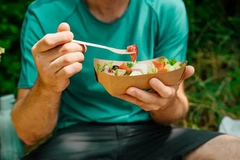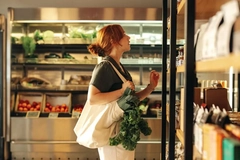Lidl rolls out fish trays made with 80% rPET following fresh meat success
Lidl has introduced fish trays made from 80% recycled PET (rPET) across its range. The grocer projects that this new sustainable action on fish packaging will — together with the packaging for fresh meat that already has this rPET composition — avoid generating 2,116 tons of virgin plastic annually.
“At Lidl, we are committed to optimizing our packaging, constantly seeking sustainable alternatives that preserve the quality and safety of our products,” says Lidl’s CSR director, Michaela Reischl.
This initiative is part of Lidl’s global REset Plastic strategy, implemented since 2017, which aims to reduce the use of plastic in own-brand items by 30%, use at least 25% of recycled materials on the total plastic in the range, as well as guarantee that all of them are easily recyclable from 2025.

In the last seven years, the company has reportedly reduced the use of plastic in its sales by 30%.
Other measures include replacing plastic packaging with cellulose or compostable alternatives across its organic fruit and vegetables range and replacing its egg packaging with cellulose, which it says reduces nearly 500 tons of plastic annually.
Last August, Lidl Switzerland introduced cellulose-based packaging in collaboration with Swiss cheese company Hardegger Käse to replace traditional plastic packaging. The retailer has launched the packaging initiative for its organic Alpstein mountain cheese and organic Usserrhödler mountain cheese.
In other circularity moves for the grocery sector, UK supermarket Tesco is planning to remove plastic stickers on its extra-large avocados to target waste reduction. The company is working with fruit supplier Westfalia for this move and will use laser technology to engrave avocados with information such as size and variety.













